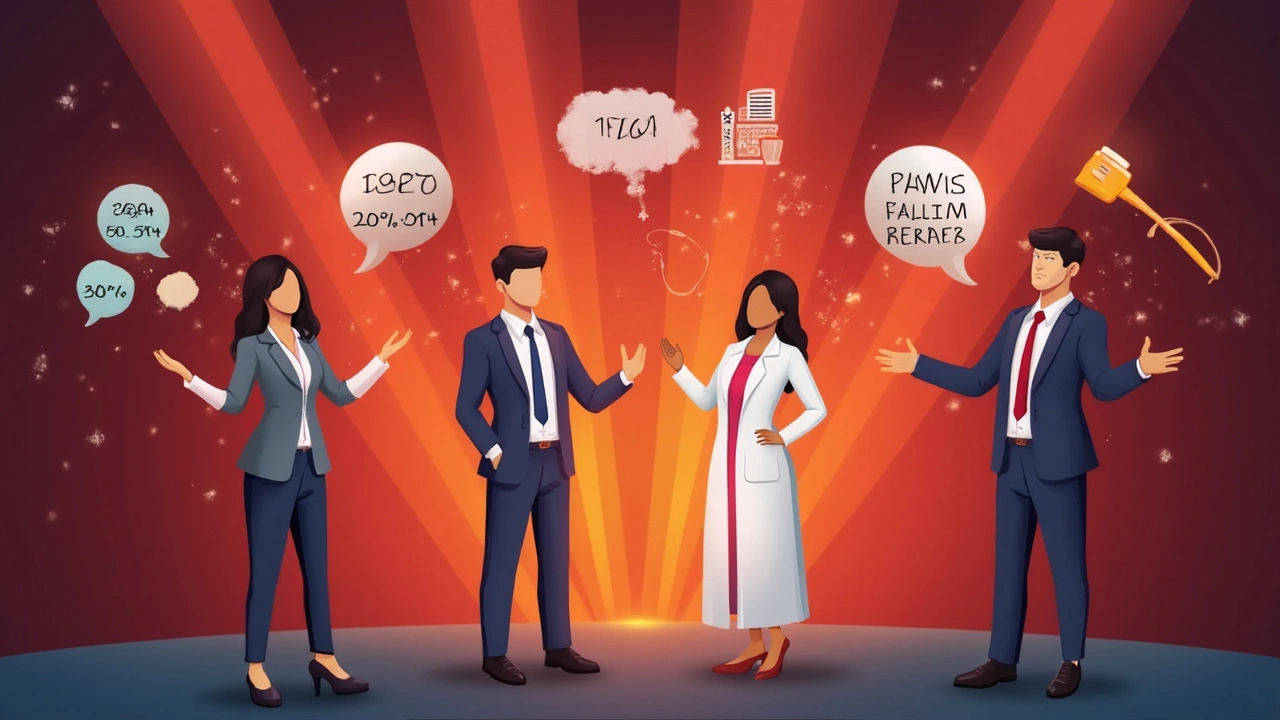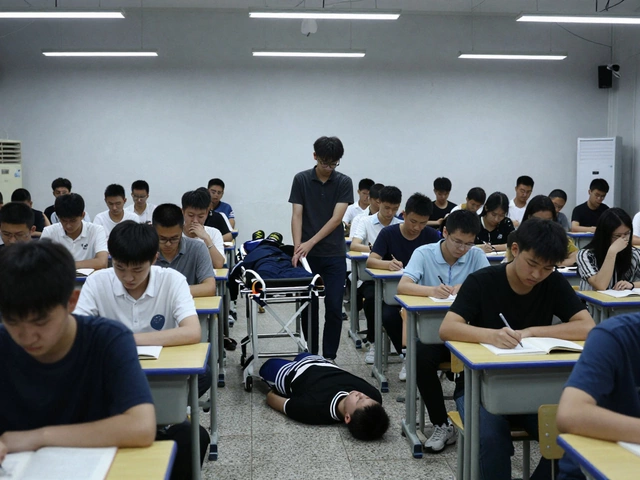Imagine studying for months, barely seeing your friends, and still walking into an exam room knowing you’re more likely to fail than pass. Sounds rough, right? Some people willingly put themselves through this—just to get their dream job or license. But which of these professional exams are actually the toughest in the world?
Some folks peg the USMLE (for doctors in the US), the Indian UPSC Civil Services Exam, Japan’s National Bar Exam, or the CFA (for finance pros) as the real nightmares. Here’s the thing: there’s no single “hardest” test for everyone. Each one has different levels of content, competition, and even psychological pressure.
If you’re thinking about tackling one of these monsters, don’t just focus on what looks impossible. Get the facts. Look at pass rates, the average prep time (spoiler: it’s usually measured in thousands of hours), and—maybe the most important part—see if anyone survives with their sanity intact. Picking the right exam is part research, part self-awareness, and part guts.
- What Makes a Professional Exam 'Hard'?
- Ranking the World's Toughest Exams
- Insider Tips from Top Scorers
- Is the Hardest Exam Right for You?
What Makes a Professional Exam 'Hard'?
So, what really sets these exams apart from the usual college finals? First off, these tests cover much more ground. For example, the Indian UPSC Civil Services Exam expects you to be on top of everything from national politics and economics to tricky ethical dilemmas—sometimes over years, not just a semester. The CFA exam? It’s basically a three-stage monster, and most people need over 300 hours of prep for each level. Only about 40% of candidates even pass Level I. Those are serious numbers.
Another big deal is the pass rate. Most professional exams don’t mess around. The USMLE Step 1 sees a fail rate for about 5-10% of first-timers, but the pass rate for repeaters drops a lot. In Japan, the National Bar Exam has a pass rate that barely cracks 30%. And if you think a finance exam can’t play mind games, think again: CFA Level II and Level III are known for super low pass rates and questions that force you to think, not just memorize.
The pressure goes beyond just knowing your stuff. A key part of what makes the hardest professional exam so brutal is time management. Questions can be both long and confusing, so finishing on time is just one hurdle. Some tests—like the UK's MRCP for doctors—make you answer over 200 questions in three hours, which leaves your brain numb and your hand sore.
Here’s what usually makes an exam ‘hard’ for most pros:
- Sheer volume of topics—you’re expected to be a walking encyclopedia.
- Complicated, tricky questions—rote learning doesn’t work anymore.
- Low pass rates—sometimes under 10%, like with South Korea's Judicial Exam.
- Massive competition—think of over a million applicants for a few hundred spots in India’s UPSC.
- The pressure of a single annual test—mess up, and you wait a whole year.
Training for these isn’t like regular schoolwork. People usually form study groups, stack up on practice tests, and push through months (sometimes years) of planning. If you want to survive, you need more than brains—you need a plan and a mindset to match.
Ranking the World's Toughest Exams
Wondering which professional exams really make people sweat? Here’s a rundown of some that are famous for being ridiculously hard, not just locally but globally. These aren’t just tough because of their content—they’re also known for super-low pass rates and brutal preparation time.
Let’s get real with details and numbers:
- UPSC Civil Services Exam (India): If you ever meet an Indian civil servant, know they beat odds most people can’t imagine. This exam has a pass rate below 1%. Every year, almost a million attempt the first stage, and only about 1,000 actually get selected. Candidates spend years prepping, often juggling full-time study and jobs.
- CFA (Chartered Financial Analyst): Ask anyone in finance about the toughest test, and the CFA shows up every time. The pass rate for Level I often hovers around 40%, but by Level III it’s even lower. Most candidates take four years or more to finish all three levels—and that’s if they don’t fail along the way.
- USMLE (United States Medical Licensing Exam): Want to practice medicine in the US? This is your mountain. The exam is taken in three steps, known for deep clinical knowledge and scenario-based questions. Even graduates who’ve aced medical school can struggle, especially on Step 1 and 2.
- Japanese National Bar Exam: Passing this is a pride point for Japanese lawyers, but it’s no joke. Only about 20% make it through, and you’ll find folks in their early 30s still grinding after multiple attempts.
- Gaokao (China): Technically for college entrance, but students treat it as a do-or-die professional gateway. Stress levels are legendary, with millions of teenagers prepping for years. Top universities accept less than 0.1% from this pool.
Here's how the numbers stack up for these exams, just to give you a real feel for how intense things get:
| Exam | Annual Takers | Pass Rate (%) | Average Prep Time |
|---|---|---|---|
| UPSC (India) | 1,000,000+ | ~0.1 | 2-3 years |
| CFA Level I | 200,000+ | ~40 | 300-350 hrs/level |
| USMLE (US) | 75,000+ | ~75 (Step 1) / ~95 (Step 2) | 3-18 months/step |
| Japanese Bar | 5,000+ | ~20 | 2-5 years |
| Gaokao (China) | 12,000,000+ | <0.1 (for top schools) | 2-4 years (high school intense study) |
The thing tying these together? Crushing competition and mind-numbing hardest professional exam status. If you’re looking at one of these, know what you’re in for. They aren’t impossible, but they’re definitely not for the faint-hearted. Stick around for tips from folks who’ve actually made it through alive.

Insider Tips from Top Scorers
If you're aiming to pass what could be the hardest professional exam around, you need strategies that work in the real world. Top scorers don’t just slog through textbooks—they play smart, and so can you.
First off, here’s a quick reality check: many legendary passers of the USMLE, CFA, or UPSC Civil Services Exam say it’s about grinding, sure, but mostly about consistency. The magic number? Most CFA charterholders report at least 300 hours per level. For UPSC, many top candidates put in 8-10 hours a day, six days a week, for a full year. USMLE takers who score in the 90th percentile say spaced repetition—reviewing stuff over and over, but spread out—was a game changer.
| Exam | Average Study Time | Sample Pass Rate |
|---|---|---|
| CFA Level 1 | 300+ hours | 37% (2024) |
| UPSC CSE | 2500+ hours | 0.2% (2023, Prelims to Final selection) |
| USMLE Step 1 | 500-600 hours | Approximately 96% (but top scores much harder) |
| Japanese Bar Exam | 3000+ hours | 27% (2024) |
What do all these exams have in common? Survivors swear by these habits:
- Make a schedule and stick to it. The people who burn out are usually the ones without a plan.
- Don’t ignore practice tests. Mock exams show your weak points better than anything else.
- Limit your study sources. Skipping from book to book can mess with retention. Stick with official stuff and the top 1-2 guides most recommended in your field.
- Write summary notes. Active recall beats just reading. Top scorers often rewrite their notes a couple times to really drill things in.
- Take mental breaks. Sounds cliché? It works. Even UPSC toppers schedule downtime.
One underrated thing: join a serious study group if you can. Real talk, the people who kept up with good groups almost always outdid lone wolves. Study groups keep you honest and sometimes help catch mistakes you didn’t even know you were making.
Finally, don’t try to be a perfectionist. The top scorers say they picked their battles, focusing on high-yield topics first and not sweating every tiny detail. That’s what separates obsessive crammers from those who actually cross the finish line.
Is the Hardest Exam Right for You?
So you’re staring down the list of the world’s toughest professional exams. Maybe someone told you the CFA is a ticket to Wall Street glory, or passing India’s UPSC unlocks respect and power. But just because an exam is tough doesn’t mean it’s the right move for you—or worth the months (sometimes years) you’ll spend grinding for it.
The first thing you need to check is the hardest professional exam that aligns with your real goals. Sure, the pass rate for the USMLE Step 1 hovers around 70% for American graduates, but drops sharply for international students. The Japanese National Bar Exam—everyone talks about its infamous fail rate, which sits at about 20%. The CFA? Fewer than half of candidates pass Level I every year, even after pouring in nearly 300+ hours of study per level (according to the CFA Institute).
Here’s a quick look at the stats for some of these beasts:
| Exam | 2024 Pass Rate | Suggested Prep Time |
|---|---|---|
| USMLE Step 1 | ~70% (US grads) | 500-600 hours |
| CFA Level I | 44% | 300+ hours |
| UPSC CSE (India) | ~0.2% | 8-12 months (full-time) |
| Japanese National Bar | 20% | Varies, often 2+ years |
But brutal pass rates aren’t the whole story. Ask yourself:
- Does this qualification get me the job I want?
- Am I able to dedicate hundreds (or thousands) of hours to focused study?
- How do I handle pressure, repeated failure, and burnout? (These exams usually mean all three.)
- Will my life after passing be worth the grind?
Tough exams can be tempting just for bragging rights, but every hour spent is an opportunity cost. If you’re not sure, find people who’ve taken that exam and talk with them. Here’s a quote from a CFA charterholder featured in a Financial Times interview:
“Unless you know exactly why you need it, the CFA exam can feel like punishment. The letters are valuable, but only if you’re going into finance.”
So, is the hardest test right for you? Not unless it actually gets you where you want to be. You don’t win anything by surviving a nightmare just for the sake of it. Pick the test that makes sense for your goals—and be realistic about both the grind and the payoff.



